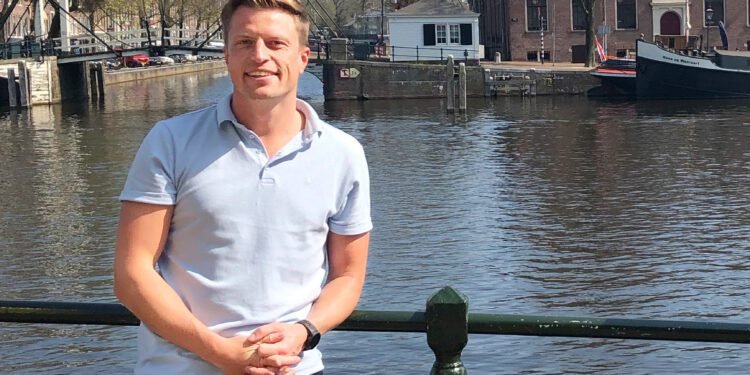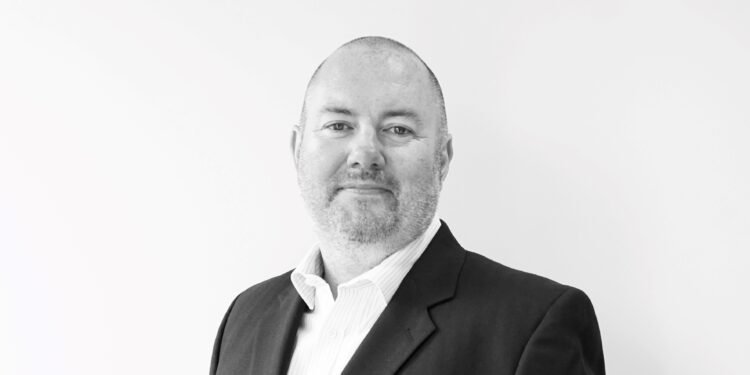Ask yourself who do you look up to and why? See how you can learn from them as fast as possible. The sooner you start, the faster you learn, the better entrepreneur you will become.
Jeffrey Dorrestijn
Meet Jeffrey Dorrestijn, CEO and co-founder of Klikkie, the app which helps you select, save, and print your photos. His ambition and goal is to build a product that would be beloved by many globally. This goal also serves as his reason for leaving Google, after working for 8 years in Dublin, Beijing, Manila, and Amsterdam.
Jeffrey used to successfully run two other companies and has received a Master of Science degree in Strategic Management at Tilburg University. In his free time, Jeffrey loves cycling fast on his race bike and going on single tracks with a mountain bike.
Let’s learn a little about you and really get to experience what makes us tick – starting at our beginnings. Where did your story begin?
Jeffrey Dorrestijn: My first job was cleaning the public community pool at 11 years old in my hometown during the summer holidays. Since the age of 13, I worked at the fry shop and moved into the restaurant business two years later. Back in 2003, I went to visit my mate who studied in Estonia. An amazing experience back then where everybody had to book his/her own travels. After a few beers, the idea was born, we were going to start a travel agency to Estonia, Latvia, and Lithuania from our dorms. Our objective was to learn how to be an entrepreneur and have fun while doing it.
In 3 years’ time, besides studies at university and part-time jobs in restaurants, the company had over 150 customers resulting in a turnover of $120K. After this experience (the excitement) I knew that I wanted to become a full-time entrepreneur someday. However, my first objective was to gain more experience at Google.
Was there somebody in your life that inspired you to take that specific journey with your business?
Jeffrey Dorrestijn: It happens that you come across events in life that will change everything. For me, it was not a single person, but a bunch of people when I started at Google back in 2007 in Dublin, Ireland. For almost 8 years I learned a great deal about how Google runs its business around the world.
Some of these learnings we have at Klikkie today. There is a BHAG (Big Hairy Audacious Goal) that everybody can dream about. The BHAG is the key driver for the yearly strategy meeting. Everything is shared with our team because transparency is key! Your team needs to be aware and able to provide new ideas that are in line with the strategy. At Google, you could always pitch new ideas that help the business, customers, and of course yourself as well. The only way to grow is by developing yourself, the team, and the business.
Every quarter the company and all team members have OKRs (Objective and Key Results). Which is also in line with how Google operates. Lunch is on us because that is one of those moments that we talk about other stuff than work. And of course, last but not least, think big! Not thinking big enough is a personal limitation that automatically kills great potential ideas.
Often leaders are asked to share the best advice they received. But let’s reverse the question. What’s the worst advice you received?
Jeffrey Dorrestijn: When you are fundraising for the first time, you can come across many people that call themselves investors. The question however is what kind of an investor are you? What is important to them? And what does a potential deal look like?
At some point, we came across a company that wanted to help us raise. The first caveat was that they didn’t invest themselves, but a network with potential angels. After receiving their terms, everything became very clear. Besides a monthly fee, equity, and a success fee of the raised fund, they also need to be mentioned in every PR communication the company does. When you are fundraising you need to be careful with whom you partner.
Has the pandemic and transitioning into mostly online shopping affected your company positively or negatively?
Jeffrey Dorrestijn: Klikkie is already an online company. When the pandemic hit, it only had a small effect in the first few weeks. Our new customer sign-ups dropped because consumers were unclear what was going to happen. 2 to 3 weeks after the announcement by the government, we saw an increase in members catching up with their latest family moments because they were in lockdown. Because of that, we also made it possible for members to share photo cards with each other at a reduced rate of only €1.50 to support family and friends in need. The company funded the remaining costs.
In your opinion, what makes your company stand out from the competition?
Jeffrey Dorrestijn: A photo or video is a way for you to get back to a particular moment in time. Google Photos or iCloud is the backbone with all the content, tens of thousands of photos, you have available digitally. Not even taking into account the number of people who have content on hard drives, computers, etc. The result is that precious moments are cluttered with other content.
At Klikkie we help you to organize and capture your most important moments. Soon we are going live with a new version of our product and I can reveal more. Important to note is that it doesn’t replace the applications above, but it’s an add-on to your life and those of your family members.
You are a successful business leader. Which three character traits do you think were most instrumental to your success?
Jeffrey Dorrestijn:
- Drive: it’s hard work. Comparing it to professional sports, if you want to be an amazing football or soccer player, you need to start at the beginning. Building your career is very similar. It requires focus, dedication, and adaptiveness.
- Curiosity: Challenge the way how things have always been done and provide alternative solutions.
- Persuasiveness: it doesn’t matter when you are talking to colleagues, partners, or investors, understanding what their needs are is important. When you know their needs, it’s easier to explain the benefits of why this is the right decision.
What Makes a Good Team Leader? A Guide to Effective Team Leadership
How important do you think it is for a leader to be mindful of his own brand?
Jeffrey Dorrestijn: I think it is super important to build your own brand. Your brand represents the company, customers, partners, and colleagues. To be honest this is something I should spend way more time on.
Best Books on Leadership: Find the Best Resources to Lead Effectively
How do you monitor if the people in your department are performing at their best?
Jeffrey Dorrestijn: The company has 5 clear KPI’s that are monitored on a weekly basis. The business runs on objectives and key results. Everybody knows what they are working on which automatically creates autonomy and clear communication. To reach those OKRs, sprints are held every two weeks to complete the objectives. At the end of the sprint, a retrospective is planned so the team can share what is going well and what needs attention. Last but not least on a daily basis we have a stand up with the whole team to briefly share what they want to accomplish and what the impediments are.
What advice would you give to our younger readers that want to become entrepreneurs?
Jeffrey Dorrestijn: Ask yourself who do you look up to and why? See how you can learn from them as fast as possible. The sooner you start, the faster you learn, the better entrepreneur you will become. Today we are still doing it at Klikkie where we hire senior consultants with a proven track record to share their experiences with our team members.
What’s your favorite “life lesson” quote and how has it affected your life?
Jeffrey Dorrestijn: During my studies, I was a bartender & waiter. Often I overheard conversations at the bar, customers saying: I would love to, but….. For example, I would love to live abroad, but I can’t leave my job.
The problem is that there is always a but. The key question is how can you overcome it or make it less relevant by emphasizing the positive factors. Otherwise, you end up not reaching your full potential.
The impact on my life has been massive. Had the opportunity to visit over 50 countries. I think I’m at 53 right now. Lived in two countries in Europe and Asia. Have a worldwide network with people who use to work at Google which is excellent when running a global business. My dream was always to successfully run a start-up. For four years I’ve been running one and now my new dream is to build a global business.
This interview was originally published on ValiantCEO.








GIPHY App Key not set. Please check settings